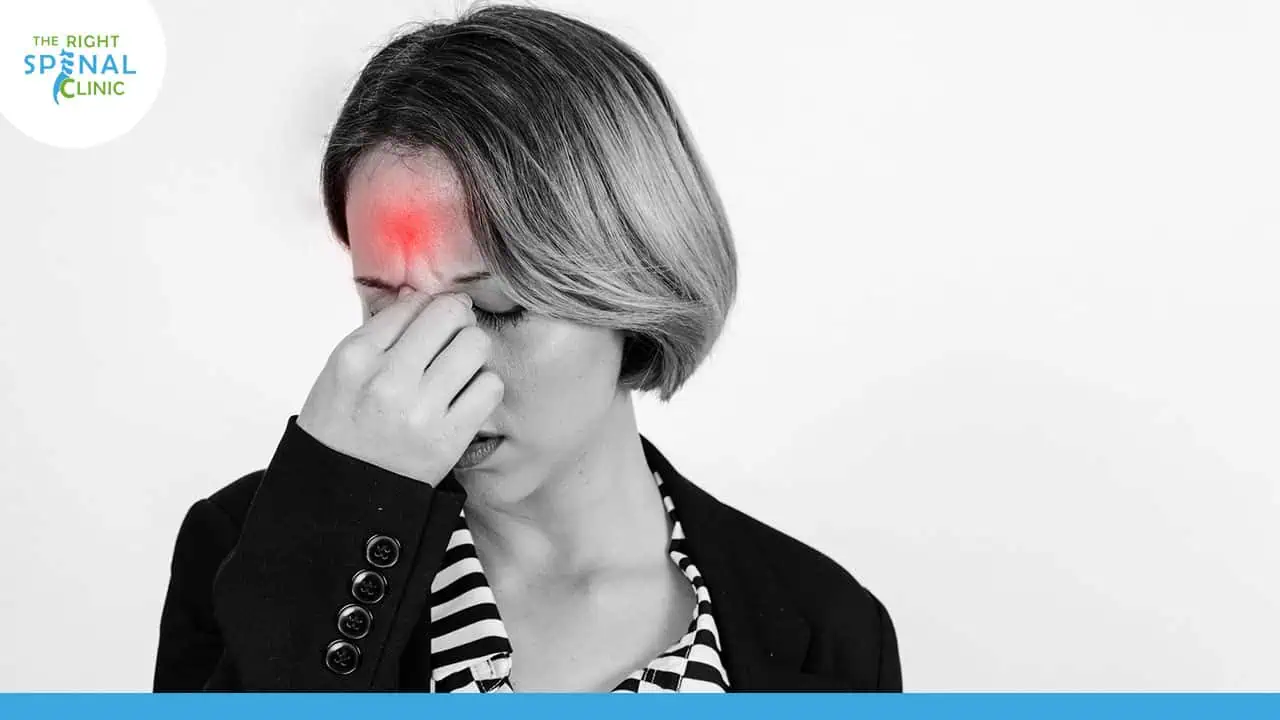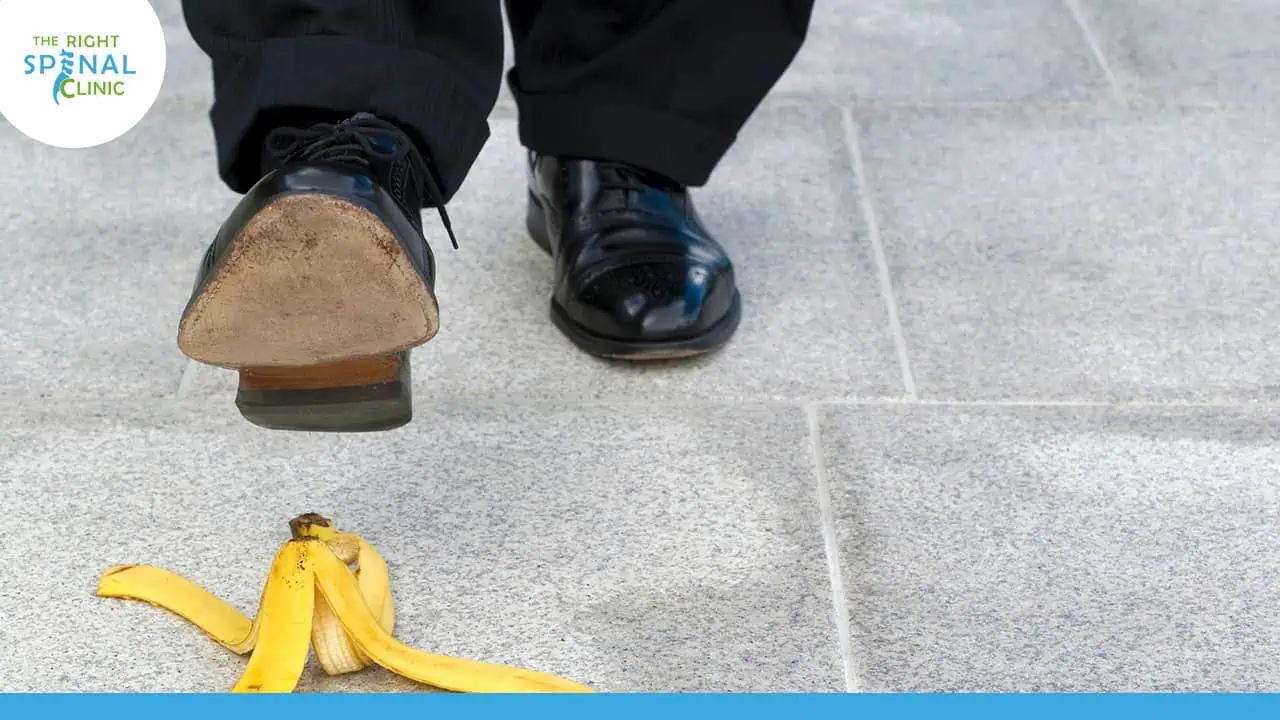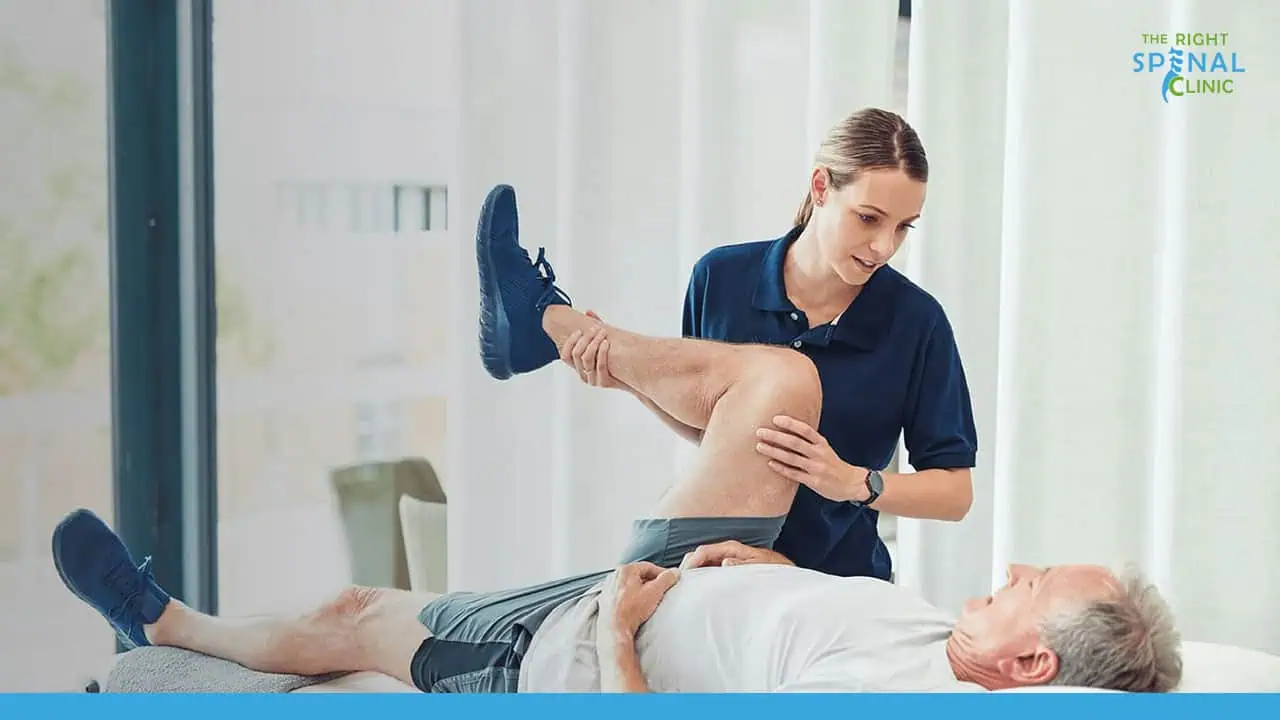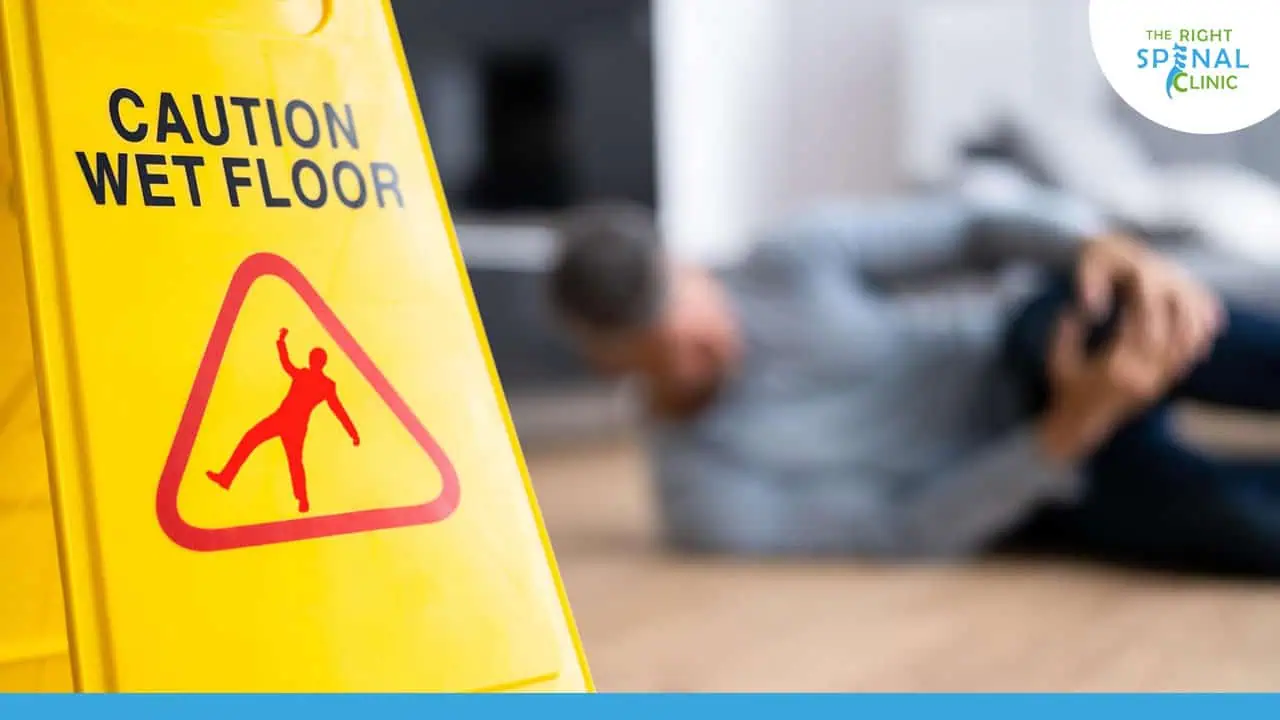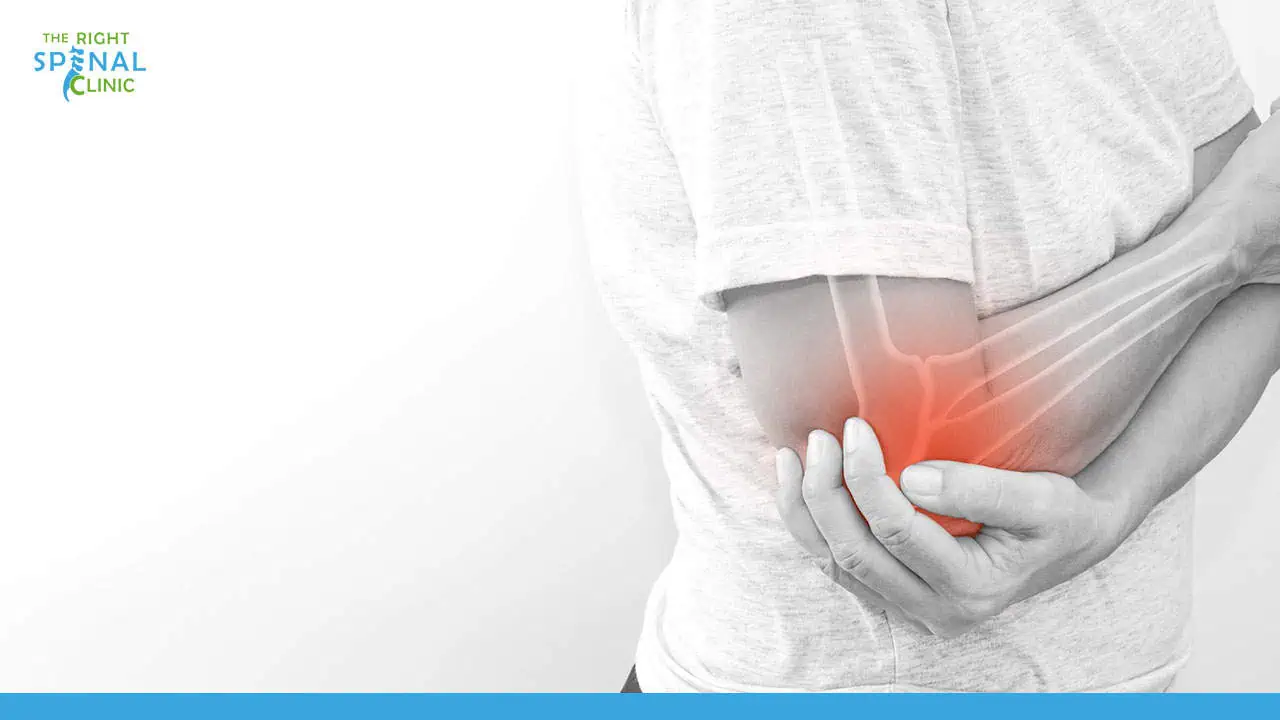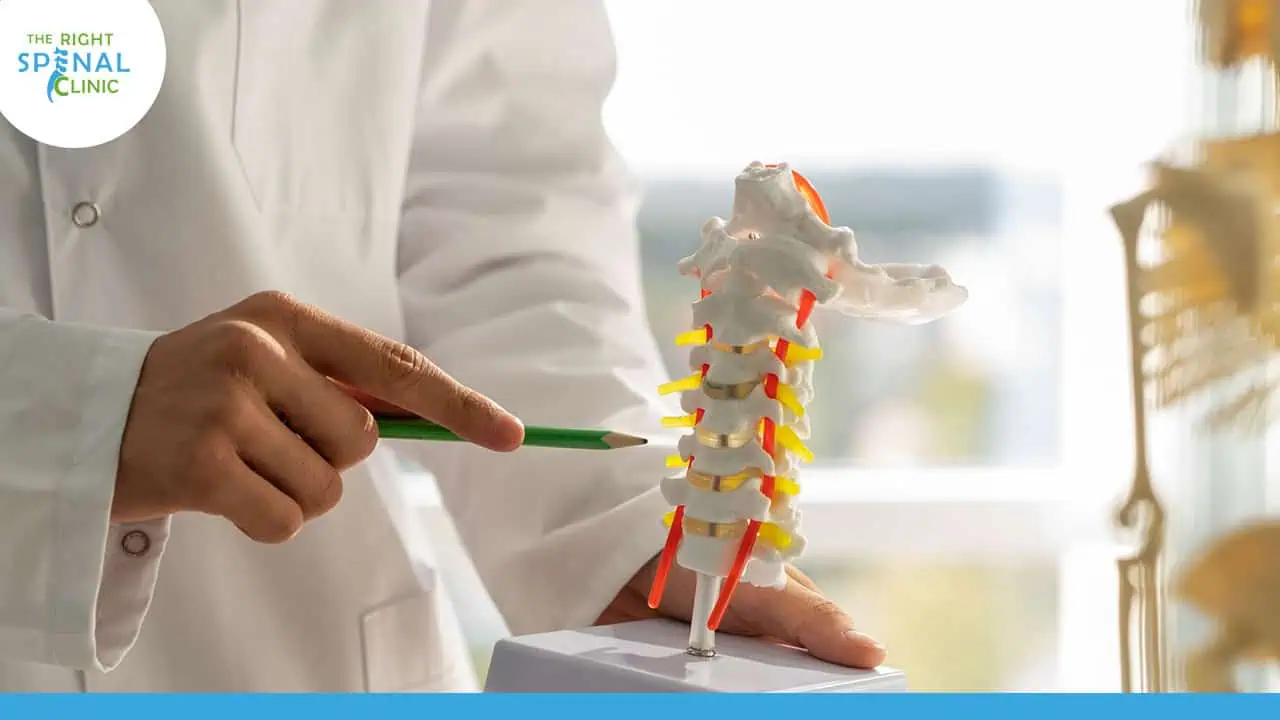
Introduction to Degenerative Disc Disease
Degenerative disc disease (DDD) is a condition characterized by the gradual degeneration of the spinal discs, which act as cushions between the bones in the spine (vertebrae). As these discs deteriorate, they lose their ability to absorb shock, leading to pain and stiffness in the spine, particularly in the lower back (lumbar spine) and neck (cervical spine). It is not technically a disease but a natural part of aging that can cause severe pain and discomfort for many individuals. Understanding the various treatment options, including nonsurgical ones, is crucial for managing symptoms and improving quality of life.
At The Right Spinal Clinic in Tampa, FL, we emphasize a comprehensive approach to treating degenerative disc disease. Our clinic offers a range of nonsurgical treatments designed to provide pain relief and improve spinal health. By focusing on personalized treatment plans, we aim to help patients manage their condition effectively without the need for surgery. Our experienced team is dedicated to addressing the unique needs of each patient, ensuring they receive the best possible care and support.
Key Points
- Degenerative disc disease is the gradual breakdown of spinal discs, causing pain and stiffness in the back and neck.
- Symptoms include chronic back or neck pain, stiffness, reduced mobility, and possible radiating pain to the arms or legs.
- Causes/Risk Factors include aging, excess weight, genetics, trauma or injury to the spine, lifestyle, repetitive movements, and smoking.
- Nonsurgical treatments include physical therapy, chiropractic care, pain management injections, and lifestyle modifications.
What is Degenerative Disc Disease?
Degenerative disc disease is a condition, not actually a disease, where the spinal discs, which act as shock absorbers between the vertebrae, begin to wear down and lose their cushioning ability. According to the Arthritis Foundation, DDD is "back pain caused by worn-down vertebral discs." As these discs degenerate, they can lead to pain, stiffness, and decreased mobility in the spine, including the low back. This degeneration can cause pain in the lower back and neck and even radiate to the arms or legs due to nerve compression, and may lead to conditions like herniated disc or spinal stenosis, which further exacerbate the pain and discomfort.
Discs naturally degenerate with age, accelerated by factors like injury, repetitive stress, or genetics, which can cause herniated discs or spinal stenosis, worsening symptoms. Understanding DDD is vital for effective symptom management through treatments such as physical therapy, chiropractic care, pain management injections, and lifestyle adjustments aimed at improving quality of life.
Signs and Symptoms
Degenerative disc disease (DDD) manifests through various signs and symptoms that can significantly impact daily life. Since it's a degenerative condition, it does not always cause symptoms immediately. Recognizing these symptoms early can help seek timely medical advice and manage the condition effectively. DDD can cause symptoms such as pain, stiffness, and reduced mobility due to the degeneration of spinal discs.
Common symptoms of DDD include:
- Back Pain: Persistent pain in the lower back or neck that can vary in intensity.
- Stiffness: A feeling of stiffness in the spine, especially after periods of inactivity or rest.
- Reduced Mobility: Difficulty in bending, twisting, or lifting due to pain and stiffness.
- Pain that Worsens with Activity: Increased pain with physical activities such as lifting, bending, or twisting.
- Pain Relief with Rest: Symptoms often improve when lying down or reclining, providing temporary relief.
- Radiating Pain: Pain that spreads to the arms or legs, indicating possible nerve involvement.
- Numbness or Tingling: Sensations of numbness or tingling in the extremities, often due to nerve compression.
- Muscle Weakness: Weakness in the muscles of the arms or legs, affecting mobility and strength.
It's important to seek medical advice if you experience these symptoms, especially if they interfere with daily activities or if the pain is severe and persistent. Early intervention can help manage the symptoms more effectively and prevent further deterioration.
Quiz: Identifying Symptoms of Degenerative Disc Disease and When to Seek Medical Advice
Instructions: Answer the following questions to determine if you may have symptoms of Degenerative Disc Disease (DDD) and whether you should consider seeking medical advice.
Questions:
- Do you experience chronic back pain that lasts for more than a few weeks?
- A. Yes
- B. No
- Does your back pain worsen when you sit, bend, lift, or twist?
- A. Yes
- B. No
- Do you feel better when you walk or move around rather than sitting or standing still?
- A. Yes
- B. No
- Do you have pain that radiates to your legs or buttocks?
- A. Yes
- B. No
- Do you experience numbness or tingling in your arms or legs?
- A. Yes
- B. No
- Have you noticed a decrease in your flexibility or range of motion in your back?
- A. Yes
- B. No
- Do you find it difficult to perform daily activities due to back pain or stiffness?
- A. Yes
- B. No
- Have you tried over-the-counter pain medications, but they provide little or no relief?
- A. Yes
- B. No
- Does your pain interfere with your sleep or rest?
- A. Yes
- B. No
- Have you had a previous injury or trauma to your spine?
- A. Yes
- B. No
Results:
- Mostly A’s: Your symptoms suggest that you may be experiencing signs of Degenerative Disc Disease. It is advisable to seek medical advice to get a proper diagnosis and explore treatment options.
- Mostly B’s: While you may not have many symptoms of DDD, if you have any ongoing concerns or your symptoms worsen, consider consulting a healthcare professional for further evaluation.
Next Steps:
- If your results indicate a likelihood of DDD, consider scheduling a consultation with a specialist or visiting The Right Spinal Clinic for a comprehensive evaluation.
This quiz is a preliminary assessment tool and not a substitute for professional medical advice. Always consult with a healthcare provider for an accurate diagnosis and treatment plan.
Key Risk Factors
Several key risk factors contribute to the development of degenerative disc disease (DDD), making some individuals more susceptible to this condition. Understanding these risk factors can help adopt preventative measures and seek early intervention.
- Age: The natural aging process leads to disc wear and tear, which increases the likelihood of developing DDD as one ages, especially if one has osteoarthritis in the spine.
- Genetics: A family history of DDD increases the risk, indicating a genetic predisposition to disc degeneration.
- Obesity: Carrying extra weight puts additional stress on the spine, accelerating the wear and tear of spinal discs. Medical weight loss programs can reduce this risk.
- Smoking: Smoking reduces blood flow and nutrients to the spine, hindering the discs' ability to repair and maintain themselves.
- Sedentary Lifestyle: Lack of physical activity weakens the muscles and structures that support the spine, contributing to disc degeneration.
- Occupational Hazards: Jobs that involve heavy lifting, twisting, or repetitive movements increase the risk of DDD. Slip and fall injuries, common in such occupations, can also contribute to developing this condition.
By recognizing these risk factors, individuals can take proactive steps to mitigate their impact. Lifestyle changes such as maintaining a healthy weight, quitting smoking, staying active, and practicing safe lifting techniques can significantly reduce the risk of developing degenerative disc disease. At The Right Spinal Clinic, we offer comprehensive evaluations and personalized treatment plans to help manage these risk factors and maintain spinal health.

Causes of Degenerative Disc Disease
Various factors can cause Degenerative Disc Disease (DDD) and accelerate the breakdown of already degenerated or bulging discs. Understanding these causes can aid in prevention and early intervention.
- Injury or Trauma: Accidents or injuries to the spine, such as those from auto accidents, can accelerate disc degeneration by causing immediate damage to the spinal discs.
- Repetitive Stress: Continuous stress on the spine from daily activities, sports, or occupational tasks can wear down the discs over time, leading to degeneration.
- Loss of Fluid in Discs: As people age, the spinal discs lose hydration and elasticity, reducing their ability to function as effective shock absorbers.
- Tears or Cracks in the Outer Layer: Tears or cracks in the outer layer of the disc can cause pain and compromise the disc's structural integrity, making it more susceptible to degeneration.
Recognizing these causes can help individuals take preventive measures, such as practicing proper body mechanics, staying hydrated, and avoiding repetitive strain on the spine. At The Right Spinal Clinic, we offer comprehensive evaluations to identify the underlying causes of DDD and provide tailored treatment plans to address them effectively.
Impact on Daily Life
Degenerative disc disease (DDD) significantly impacts daily life, causing persistent back or neck pain that hinders tasks from chores to work responsibilities. Stiffness and reduced flexibility limit movement, making bending, lifting, and walking challenging. Pain often leads to a sedentary lifestyle, weakening spine-supporting muscles and worsening the condition. Sleep disturbances due to chronic pain result in fatigue and affect overall well-being. Emotionally, DDD can lead to frustration, depression, and anxiety, impacting social activities and relationships. Seeking medical advice and exploring treatment options are crucial to managing symptoms effectively and maintaining functionality.
Diagnosing Degenerative Disc Disease (DDD)
Diagnosing degenerative disc disease involves a thorough medical evaluation, including:
- Medical History and Physical Exam: Assessing symptoms, medical history, and physical condition.
- Imaging Tests: Using X-rays, CT or MRI to visualize disc degeneration and spinal changes.
- Neurological Exams: Evaluating nerve function and detecting any nerve compression or damage.
These diagnostic steps help determine the extent of disc degeneration and guide the appropriate treatment plan.
Nonsurgical Treatments for Degenerative Disc Disease (DDD)
Nonsurgical options are crucial for individuals with Degenerative Disc Disease (DDD), aiming to relieve symptoms, reduce pain, and enhance mobility without invasive procedures. Nonsurgical treatment may include:
- Physical Therapy: Essential for DDD management, utilizing targeted exercises to strengthen spine-supporting muscles, enhance flexibility, and alleviate pain through tailored exercises and manual therapy methods. This treatment stabilizes the spine, reduces pain, and prevents further disc degeneration.
- Chiropractic Care: Focuses on spinal adjustments to realign the spine, alleviate nerve pressure, and reduce DDD-related pain. Techniques include manual adjustments and instrument-assisted methods, improving spinal alignment and nerve function for pain relief and enhanced mobility.
- Pain Management Injections: Epidural steroids and nerve blocks deliver medications directly to pain sites, reducing inflammation and blocking pain signals from reaching the brain, offering substantial and lasting relief from chronic DDD symptoms that may not respond to other treatments.
- Lifestyle Changes: Reduce inflammation with an anti-inflammatory diet rich in fruits, vegetables, whole grains, and lean proteins. Use low-impact exercises like yoga, swimming, and walking to maintain flexibility and keep your back strong. Use ergonomic furniture and accessories to support the bones in your spine and reduce strain.
- Home Remedies: Apply heat or cold packs to the affected areas to reduce pain and inflammation. Use your legs to lift heavy objects and avoid twisting to prevent spinal strain. Drink plenty of water to keep spinal discs hydrated and elastic, maintaining their ability to function as effective shock absorbers.
Nonsurgical treatments offer several advantages over invasive procedures for managing DDD, including fewer risks, shorter recovery times, and minimal disruption to daily life. These treatments aim to alleviate pain, improve mobility, and enhance overall spinal health, supporting a higher quality of life for individuals with Degenerative Disc Disease.
However, surgery may be required in certain circumstances, such as when experiencing persistent severe pain persists, neurological deficits, spinal instability, or when all nonsurgical treatment options have been exhausted without sufficient relief. In these cases, surgical options such as spinal fusion or disk replacement may be considered to provide long-term relief and restore stability to the spine.
Taking the Next Step with The Right Spinal Clinic
Seeking medical attention for spinal health concerns such as Degenerative Disc Disease (DDD) is crucial for accurate diagnosis and effective treatment to manage symptoms and prevent progression. To schedule your consultation at The Right Spinal Clinic, visit our website or give us a call. During your initial visit, our team will conduct a comprehensive evaluation, review your medical history, perform an examination, and discuss your symptoms and treatment goals to create a personalized plan tailored to your needs.
For more information or to schedule your consultation, please visit The Right Spinal Clinic's website or call us at (813) 392-2164. We look forward to assisting you on your journey to better spinal health.
Recent Posts



